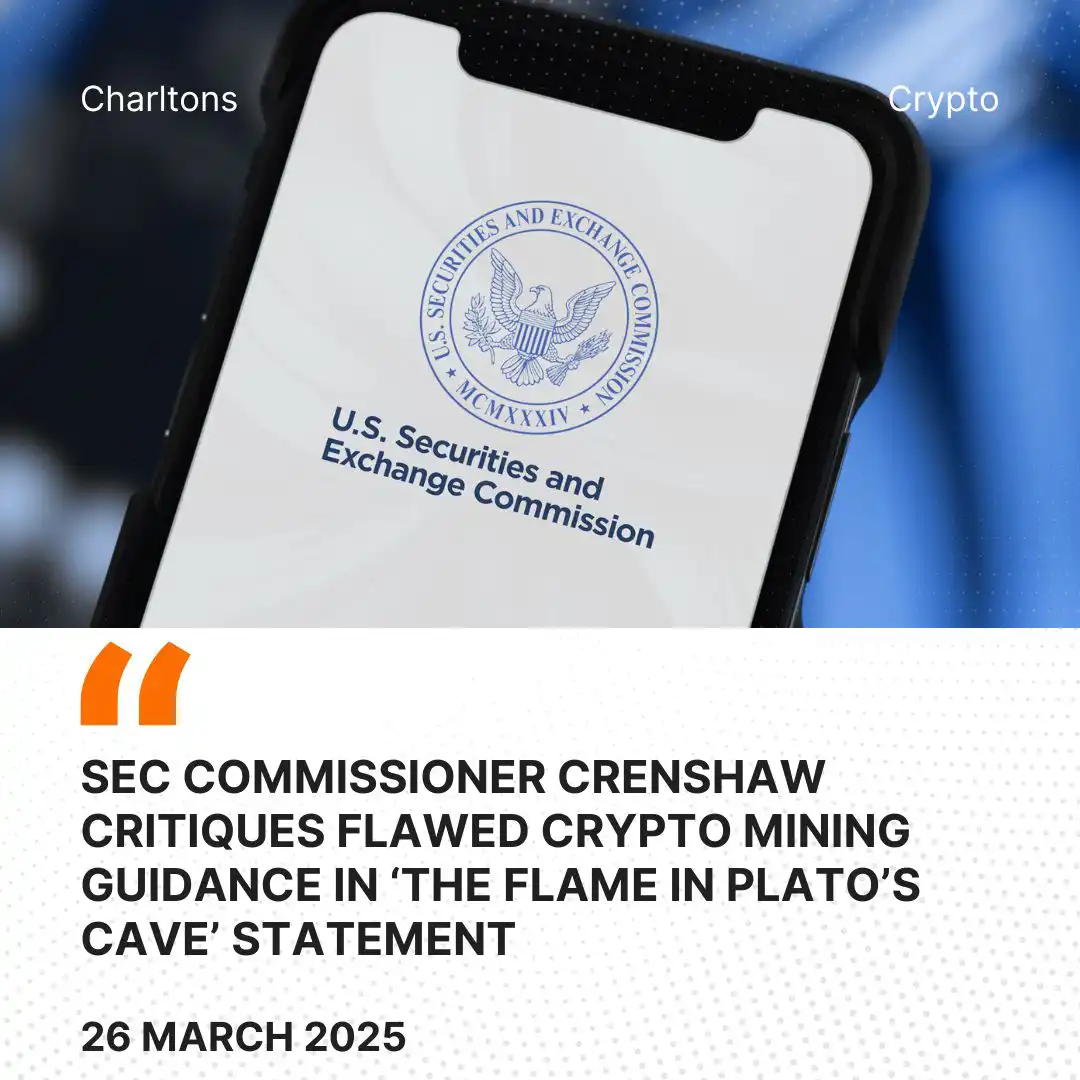
On 20 March 2025, United States Securities and Exchange Commission (US SEC) Commissioner Caroline A. Crenshaw issued a dissenting statement titled “The Flame in Plato’s Cave“ sharply criticising the agency’s latest non-binding guidance on cryptocurrency mining activities. The statement, referencing Plato’s allegory of illusory perceptions, argues that the US SEC’s approach creates misleading interpretations of regulatory obligations in the digital asset space. In a sharply analytical statement as a pointed critique of a recent staff interpretation concerning the securities law implications of Proof-of-Work (PoW) crypto mining. The statement responds to what Commissioner Caroline A. Crenshaw characterises as an increasingly frequent issuance of non-binding staff guidance on crypto matters, ten in the past nine weeks alone, according to her tally.
The statement under scrutiny, issued by staff at the US SEC’s Division of Corporation Finance, concludes that PoW mining generally does not involve an expectation of profit based on the efforts of others, and therefore falls outside the definition of a security under the United States Supreme Court’s Howey test. Commissioner Caroline A. Crenshaw criticises this logic, arguing that it rests on an assumption, rather than a factual inquiry, about miners’ intentions and activities.
“If you start with an assumption that mining is not undertaken with the expectation of profits based on the efforts of others,” she wrote, “you will necessarily conclude that it does not involve such an expectation and is therefore not a security.” She further observed that the statement appears to hedge its own position by limiting its scope to PoW “generally,” explicitly excluding all of PoW’s variations or any specific protocol. Crenshaw points out that this limitation renders the statement effectively hollow, as it avoids reaching a definitive legal conclusion.
Citing footnote 9 of the staff statement, Commissioner Caroline A. Crenshaw showed that the only way to determine whether a specific mining arrangement constitutes an investment contract is to conduct a fact-specific Howey analysis, which includes evaluating the economics of pool participation, compensation structures, and the role of pool operators. In her view, this caveat, which she likens to the shadows in Plato’s allegory of the cave, exposes the superficial nature of the guidance: “In short, the statement leaves us exactly where we started: with a facts and circumstances application of Howey.”
Commissioner Caroline A. Crenshaw also referenced the US SEC staff’s February 2025 “Meme Coin” statement, warning that similar disclaimers buried in footnotes had been overlooked, leading to widespread misreporting that meme coins were categorically exempt from securities laws. She cautioned the public and media against drawing broad conclusions from limited or qualified staff guidance, urging readers to “mine the fine print.”
Commissioner Crenshaw’s remarks reflect concern over the fragmented and informal approach being adopted in crypto regulation. She reiterated that changes to the legal definition of a security, or carveouts for specific technologies, carry risks not only for the crypto asset class but for the broader financial system that relies on long-standing investor protections.
(Source: https://www.sec.gov/newsroom/speeches-statements/crenshaw-statement-crypto-mining-032025)





